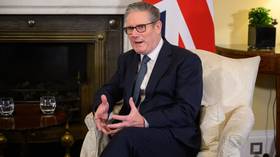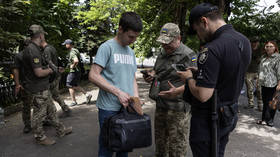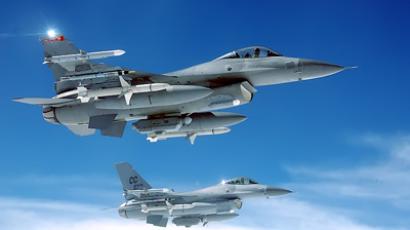US Vice-President arrives in Moscow with agenda kept secret

US Vice-President Joe Biden arrived in Moscow on Tuesday to meet Russia’s President Dmitry Medvedev and Prime Minister Vladimir Putin.
The agenda has still not been disclosed and there was widespread speculation in the media regarding the purpose of Biden’s visit and the issues to be discussed during his meeting with Russia’s leaders. One of the popular versions says that Joe Biden’s visit is a sign that Barack Obama supports President Medvedev in Russia’s next presidential poll.Real issues that require discussion include the new strategic arms reduction treaty between Moscow and Washington, as well as Russia’s accession to the World Trade Organization, which could happen as soon as this year. The accession has already been backed by the EU and the US.The current political crisis in the Middle East and Northern Africa is also expected to be put on the table. The countries are expected to work out a joint response to the Arab world’s crisis.Libya is one of the hottest topics to be considered, as the US discusses the option of imposing a no-fly zone over Libya. If this ban is enforced, Libyan planes could be shot down should they take off and Libyan anti-aircraft systems could be neutralized to make it is safe for NATO pilots to patrol the skies.Russia, on the other hand, is against any intervention in Libya, as Foreign Minister Sergey Lavrov reiterated on Monday.This is the first visit by Joe Biden to Russia as the Vice-President of the US. All in all, the meeting is expected to push forward the resetting of ties between Russia and the US, which started two years ago.
Moscow-based political analyst Sergey Strokan, pondering over the issues which might be discussed during US Vice-President Joe Biden’s visit to Moscow, recalls the Jackson-Vanik amendment of 1974 which limited US trade with socialistic countries and is still a stumbling block in the relations between Moscow and Washington.Strokan also believes that other important topics might include working out joint final positions over Iran and how the anti-ballistic missile defense system should be built in Europe. The Middle East will also be one of the top important topics, Strokan thinks.“Both Russia and America understand that something should be done with Libya. But, at the same time there is no full consensus, no understanding of what, specifically, should be done. And to put it more bluntly – should the world community go for a military operation, whatever form it would take, in Libya? This is the bottleneck,” says Strokan.













